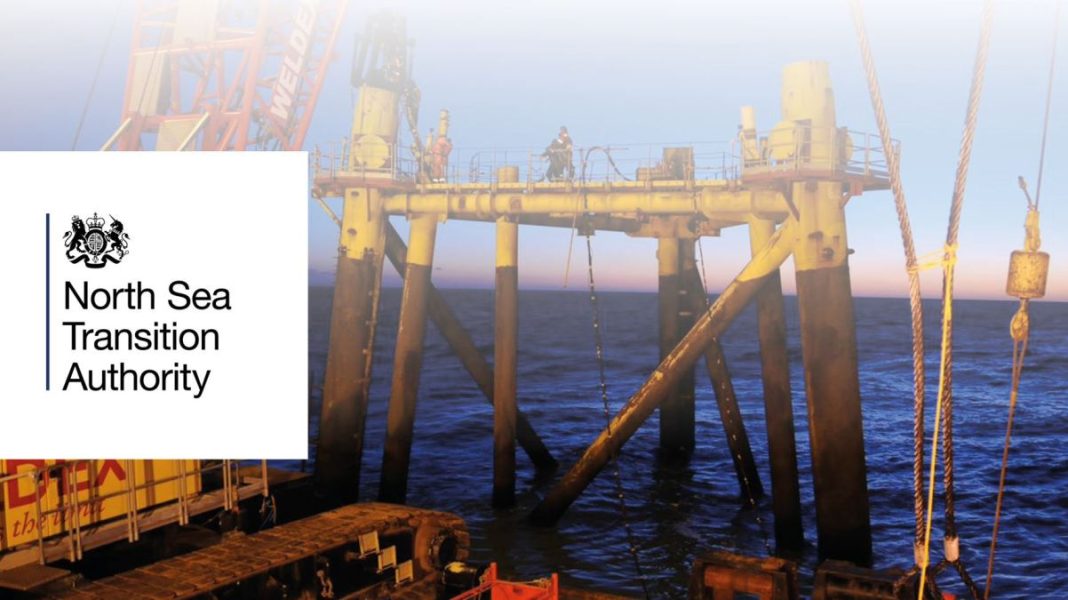The North Sea oil and gas industry spent £1.6 billion decommissioning redundant wells and infrastructure last year, more than in any of the previous five years, new figures show.
The latest North Sea Transition Authority (NSTA) Decommissioning Cost and Performance Report reveals that the industry spent a total of around £8 billion from 2017-22.
And activity levels are expected to remain high, with about £2 billion a year forecast to be spent on decommissioning in the next decade, a massive opportunity to keep developing skills and experience in the basin and help the supply chain win lucrative contracts overseas by reinforcing its status as global leader.
Encouragingly, UK suppliers are in line to secure around 70% of the work associated with UK North Sea decommissioning projects listed in Supply Chain Action Plans (SCAPs) lodged with the NSTA last year.
This indicates the sector is living up to its North Sea Transition Deal pledge to ensure at least half of spending on decommissioning projects goes to the UK supply chain, as well as meeting its legal obligation to clean and remove infrastructure once fields stop producing.
The industry has also built an impressive track record of carrying out decommissioning projects cost-efficiently and safely due to its willingness to share learnings and data – and embrace new technologies and innovative commercial models.
Achieving further improvements will be challenging, however, in the face of factors including heightened demand for equipment, vessels and services from other regions and sectors, such as offshore wind – which have pushed up prices, taking the total cost estimate for decommissioning to £40 billion.
The NSTA is confident that industry can overcome these hurdles and meet its cost-efficiency target – lowering the estimate to £33.3 billion by end-2028. However, operators must strive to deliver their agreed schedules and commitments, work even more collaboratively with the supply chain and share their plans earlier, ensuring resources are available at the right time.
The NSTA is providing ongoing support by introducing new key performance indicators and benchmarks – developed with industry and underpinned by the collection of new datasets, including the length of time taken to complete specific tasks, the number of crew members employed, and the types of vessels used.
The new metrics will provide a more complete picture of how well decommissioning projects are being planned and executed, helping identify opportunities for industry to improve its overall performance and realise cost efficiencies.
This complements the NSTA’s existing efforts to support the sector by sharing best practice, setting clear expectations on well decommissioning deadlines, and encouraging operators to repurpose oil and gas infrastructure for energy transition projects.
The NSTA also promotes the use of its Energy Pathfinder portal, which advertises upcoming tendering opportunities, and expects more operators to support and contribute to the Decommissioning Data Visibility project, launched in 2021 alongside the Decommissioning and Repurposing Taskforce (DaRT).
“The North Sea decommissioning sector is highly active and productive, and the industry is ideally placed to realise the massive £21 billion opportunity which will come its way over the next 10 years.
“However, operators must redouble their commitment to collaborate with the supply chain and plan even more effectively if they are to overcome challenging market conditions and remain competitive on cost. The NSTA will continue to use its powers and influence to support the industry as it strives for continuous improvement, including through the development of new benchmarks.”
Pauline Innes, NSTA Director of Supply Chain and Decommissioning
“It is critical that North Sea operators work together to ensure that oil and gas assets which, at the end of their production life, cannot be repurposed to support new technologies like carbon capture and storage, are decommissioned safely and in the most cost-effective manner. Collaborating and sharing data is an important first step to providing the supply chain with the visibility and confidence they require to meet UK demand for such works in a timely and cost-competitive way.”
Bob Fennell, DaRT co-chair and North Sea executive vice president at Harbour Energy
“Decom Mission, as the independent voice of decommissioning in the energy sector, welcomes the 2023 Cost Report. As might be expected, macro factors continue to influence both the cost, pace and delivery of decommissioning in the UKCS and beyond. In working with our members, the NSTA and others we have a wide understanding of how this market is evolving, who is providing the relevant services and future trends. As the report highlights there remains a considerable volume of work to be executed, the majority of which within the immediate decade.
“Decommissioning is but one of many market opportunities that members face, with the continuing advancement of the energy transition and the international need for decommissioning services. Transparency of coming works and interaction between the owner/operator community and the supply chain is key to ensuring that the services, preferably offered from within the UK, exist to meet this current and future demand. Meanwhile a revision and rebase of the cost estimate helps ensure that both sides are working with a joined-up view of what is needed and recent dialogue around the correct performance indicators underline the need to ensure a holistic outcome where best practice meets affordable, but profitable services that can then be exported elsewhere.”
Sam Long, Decom Mission Chief Executive
Download the report here.












